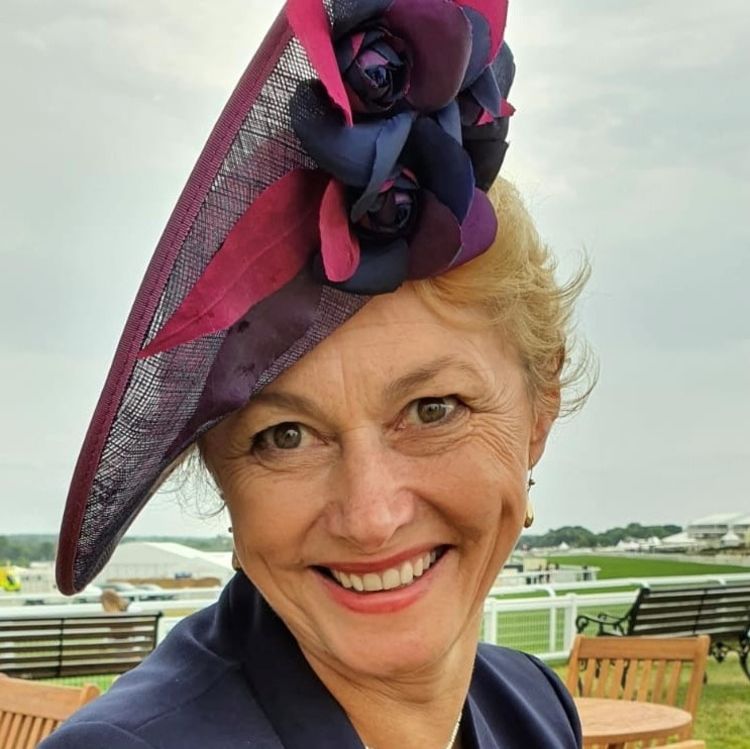Christine Blanshard, 1981
"I was awed and intimidated by the general poshness of it all"

Dr Christine Blanshard read Medical Sciences at Clare. She is now Medical Director at Salisbury NHS Foundation Trust.
Who was your greatest Clare influence and why?
My greatest Clare influence was Doc Wright. He taught me anatomy of course, but also to be kind, to treat people with respect regardless of where they came from, to give praise when its due and a guiding hand when things are not right. And about wine. Which I previously thought only came in red or white. I just wish I had his prodigious memory – over six decades he never forgot the name of a student, their spouse, their children and probably their dog.
Christine's Story
When I went up to Clare in 1981 I couldn’t believe they had let me in. I was the first of my family to go to university and the only one from my school (Armthorpe Comprehensive) to go to Oxbridge. I was awed and intimidated by the general poshness of it all – the punts, the chapel, dinners in hall and dessert in Fellows rooms, a friend who arrived with a full dinner service for six including egg cups. But I was welcomed, made lifelong friends, got to act, produce plays, speak in public, row (badly) and cox (better). I graduated confident I could have a go at anything and fit in anywhere.
I trained in general medicine and gastroenterology in London, including a couple of years doing research for my MD, on diarrhoea in late stage HIV infection. These were “Its a Sin” days and I looked after 150 gay men with a handful of T cells between them, and no effective treatment for their immunodeficiency. We had no known drugs active against the unusual infections that were making their last months so miserable and I struggled with the ethics of placebo controlled trials in the circumstances – so did bad science in the hope of a treatment breakthrough. I continued my research interest in microsporidia, a tiny microrganism of interest to about 10 people in the UK, when I became a Senior Lecturer at Barts. But academia wasn’t for me and I gradually developed an interest in medical leadership and management, eventually becoming the Medical Director of Salisbury NHS Foundation Trust.
When I joined the Trust in 2011 I thought it was a nice quiet little place where nothing much happened. This of course proved not to be the case when we found ourselves looking after the victims of the first chemical weapons attack in Europe since the war. The Skripals and other victims survived being poisoned with Novichok, but sadly Dawn Sturgess did not despite the best efforts of our intensive care team. It was an extraordinary experience being at the centre of a media and political frenzy, headline news every day for weeks, whilst trying to do the right thing for our patients, our staff and the public. Those acting skills came in useful when I informed the media that one of the patients had recovered sufficiently to be discharged, knowing that she had already been spirited away to a secret location. And the public speaking I had learned in College gave me confidence in front of the cameras and microphones. But I think what helped most of all was the confidence, courage, and the ethical values that I had learned at Clare and throughout my training. Many of the decisions we had to make at the time will be picked over by history but they were made on the basis of safety, confidentiality, autonomy and best interests of our patients and staff.